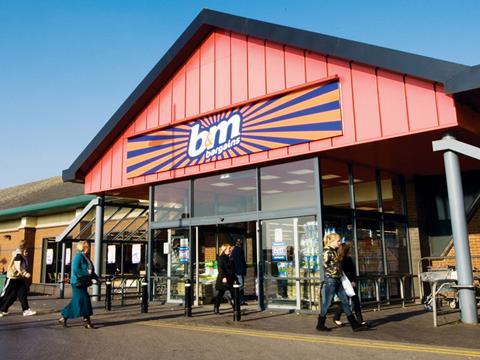
Top Story
B&M Bargains owner B&M European Value Retail has named current CFO and former Asda exec Alex Russo as CEO when current boss Simon Arora steps down as its annual results show an accelerating drop in sales.
Announcing its results for the year to 26 March today, B&M said group revenues decreased by 2.7% on prior year to £4.7bn (or down 2.4% at constant currency), while B&M UK facia revenue dropped 4.1% year-on-year as like for like revenues slumped 9%.
This downwards trend has accelerated since year-end, with B&M UK like for like sales over the first 8 weeks of its 2023 financial year down 13.2% and 11.5% versus 2022 and 2021 respectively.
However, B&M stressed that on a two year basis its annual revenues remained up 22.5%, while B&M like for likes were up 13% over the same period with sales densities significantly higher than pre-pandemic levels due to retention of new customers.
So far in its new financial year like for like sales were still up 7.7% in April 2022 on a three year basis, with an improvement to growth of 10.9% in the first 3 weeks of May 2022.
The group said that most product categories delivered double-digit LFL growth over a two-year period, with notable strength seen in general merchandise ranges where the business ensured good stock availability and was able to meet strong customer demand.
Due to this relative out-performance in general merchandise, B&M UK gross margin benefited from another small step up this year, together with a high sell-through rate on seasonal ranges leading to limited markdown activity
Group adjusted EBITDA edged back slightly to £619m from £626m, with an adjusted EBITDA margin of 13.2% up from 13.0%, both slightly above consensus expectations
Group statutory profit before tax remained flat at £525m.
Over the period 34 gross new B&M UK store openings offset by 14 closures and relocations, with new store returns remaining “very strong”.
In France it saw “excellent progress”, with all stores now under the B&M banner and an adjusted EBITDA of £32m up from £11m last year.
In Heron Foods, like for like sales performance steadily improved throughout the year as the comparatives from 2021 eased, meaning EBITDA result was similar to last year and profit margin was broadly maintained.
Looking forwards, B&M said that trading patterns are expected to remain unpredictable in the year ahead.
In particular, the elasticity between volume and price on general merchandise is “difficult to predict”, as is the demand at individual category level.
However, it said the group remains well positioned to continue offering great value-for-money across a wide range of categories. It noted that 93% of all products sold at B&M are less than £20, making it less exposed to any sharp reductions in spending on higher ticket items.
CEO Simon Arora commented: “I am very pleased with the results we have delivered. The strength and resilience of our business model has enabled us to execute our plans well and continue offering compelling value for money to customers. As a result, we have sustained the step up in sales and profit compared to pre-pandemic levels. To all colleagues across the group who helped make that happen, I extend my sincere thanks.
“The retail industry is facing inflationary pressures whilst our customers are having to cope with a significant increase in the cost of living, making spending behaviour in the year ahead difficult to predict. However, we have seen before that during such times customers will increasingly seek out value for money, and B&M is ideally placed to serve those needs. As such, we are well positioned to support the communities in which we trade and continue our long-term growth strategy.”
Meanwhile, on the forthcoming change in leadership, he added: “It has been an honour to lead B&M and together build such a large and popular retailer. I believe that Alex is uniquely well placed to continue B&M’s success and I will work hard to ensure a smooth transition.”
Russo has been appointed following a “thorough assessment and external benchmarking process” over the last six weeks since news of Arora’s departure was announced.
Russo has held senior leadership positions at retailers such as Asda, Tesco and Kingfisher. Since he joined the Group in October 2020 he has “demonstrated impressive commercial acumen and operational management skills in addition to being a highly capable CFO”.
The Board will now consider the most appropriate handover plan. A process to recruit a successor to Russo as CFO has already begun.
Peter Bamford, chairman, said, “On behalf of the Board, I am delighted to announce Alex Russo as successor to Simon Arora as CEO of B&M. Since joining the Group, Alex has made a very positive contribution to the business. He has demonstrated strong leadership skills and a deep appreciation of the B&M culture and business model, making him the outstanding candidate for the role.”
Russo commented: “It is a privilege to have the opportunity to build on Simon’s legacy and lead this fantastic business in the years ahead. We have a well-founded strategy, a very strong customer proposition and significant opportunities for further growth ahead of us. Along with the support of the Board, I look forward to working together with Bobby Arora and the rest of the senior management team in the years ahead.”
B&M shares have slumped 11.2% to 407.2p on this morning’s release amid the new year sales slump.
Morning update
Unilever has announced the appointment of activist investor Nelson Peltz as a non-executive director.
Peltz, CEO and founder of Trian Fund Management, will join the board as a member of its compensation committee, expected to be effective from 20 July 2022.
Peltz, who has criticised Unilever’s performance and strategy, previously served on the boards of several major global consumer goods companies, including The Procter & Gamble Company, HJ Heinz Company and Mondelēz International.
Nils Andersen, chair of Unilever, commented: “We are pleased to be welcoming Nelson to the Unilever Board. We have held extensive and constructive discussions with him and the Trian team and believe that Nelson’s experience in the global consumer goods industry will be of value to Unilever as we continue to drive the performance of our business.
“We look forward to working closely together to create long term sustainable value for our shareholders and wider stakeholders.”
Peltz added: “I am delighted to be joining the Board of Unilever. We believe it is a company with significant potential, through leveraging its portfolio of strong consumer brands and its geographical footprint. Trian has made a considerable investment in Unilever.
“We look forward to working collaboratively with management and the Board to help drive Unilever’s strategy, operations, sustainability, and shareholder value for the benefit of all stakeholders.”
Trian holds interests in approximately 37.4 million ordinary shares of Unilever, constituting approximately 1.5% of Unilever’s share capital.
Meanwhile, UK grocery sales rebounded to 0.6% over the last four weeks ending 21st May 2022, which represented the first sign of positive growth in 2022 since the Christmas period, according to new data released today by NielsenIQ.
NielsenIQ data shows that it is visits to stores (up 7% versus a year ago) which is driving Total Till growth and the improvement in bricks and mortar sales (+2%).
The overall growth in sales was also helped by a 2.3% increase in the week ending 21st May, as UK shoppers prepared for the school holidays and the long bank holiday Jubilee weekend, with 20% of households expected to buy extra groceries for the Jubilee weekend.
In terms of categories over the last four weeks, there was a strong increase in sales for pet and pet care products (+11.9%), soft drinks (+11.2%) with Sports and Energy drinks sales increasing 21% and health, beauty and baby care products (+10.4%). The categories with the biggest declines were beers, wines and spirits (-12.1%) due to COVID-19 comparatives, as well as meat, fish and poultry (-4.7%).
However, while there was an improvement in grocery sales in the last four weeks, NielsenIQ data shows that shoppers spent 1.2% less at UK supermarkets than in the previous four weeks, down to £10bn from £10.1bn in April, which benefited from the Easter period.
In the last four weeks ending 21st May, the convenience channel outperformed supermarkets, with a 3.7% growth in sales and now accounts for 24% of all FMCG sales.
Promotional spend fell from 21.5% of value sales last month to 20.4%, similar to this time last year (20.6%) suggesting that there is little appetite from retailers to use volume-based promotions to drive sales when shoppers are looking to spend less on each shopping trip.
In terms of retailer performance in the last 12 weeks, total till sales fell 1.7% with Tesco (-1.4%), Iceland (-1.3%), Co operatives (-0.3%), M&S (+1.6%), Aldi (+5.8%) and Lidl (+9.9%) the retailers to gain market share.
Mike Watkins, NielsenIQ’s UK Head of Retailer and Business Insight, commented: “The forthcoming Platinum Jubilee Bank Holiday weekend should give a welcome if short-term boost to grocery sales. While many shoppers may have been pre-buying items such as drinks and party decorations, the forecasted warm and sunny weather will provide a good trade up opportunity for fresh foods with al fresco dining top of mind for shoppers. While this helps superstores with their breadth of range, convenience stores are also likely to benefit from impulse purchasing as they always do when the sun shines.”
“Shoppers are becoming more considered in what they buy and the current challenge for supermarkets is to improve volume growth by getting more items into the shopping basket. The upside for supermarkets is that shoppers may be more inclined to dine in at home as budgets get squeezed. Inflation is also moving the dial in the General Merchandise category and with around 35% of General Merchandise sales at supermarkets coming from clothing which has strong value credentials, this may present an opportunity as shoppers return to stores and shop around this summer to save money in discretionary categories.”
Elsewhere, oils specialist KTC Edibles has been acquired by Endless private equity after a sales process overseen by Oghma Partners that was first revealed by The Grocer.
The UK private equity player has acquired a majority stake in the oils supplier, which produces over 250 million litres a year of cooking oils to manufacturers, retailers and wholesalers in the UK and globally.
Endless’ acquisition of KTC will provide investment for the company’s ambitious future growth plans through further development of its sites, range and service offerings.
Paresh Mehta, shareholder and current MD of KTC, will continue to lead the business.
There will be more on the story this morning at thegrocer.co.uk/finance
On the markets this morning, the FTSE 100 is up another 0.3% to 7,620.1pts.
Early risers include Unilever, up 6.9% to 3,737p, McBride, up 3.7% to 33.5p and PayPoint, up 2.1% to 561.6p.
Fallers include Bakkavor, down 2.7% to 100.2p, Just Eat Takeaway.com, down 2.2% to 1,731.4p and SSP Group, down 2.1% to 272p.
Yesterday in the City
The FTSE 100 opened the week up 0.2% to 7,600.1pts.
Tech stocks led the way yesterday, with Deliveroo up 8.3% to 93.1p, Just Eat Takeaway.com gaining 3.8% to 1,770.4p, Ocado ending up 3.8% to 935.2p and Naked Wines closing up 2.5% to 371p.
Other risers included Pets at Home, up 2.4% to 345p, Nichols, up 2.3% to 1,310p, Marks & Spencer, up 1.6% to 152.3p and Greggs, up 1.5% to 2,274p.
The day’s fallers included PayPoint, down 4.2% to 550p, British American Tobacco, down 2.7% to 3,456p, Imperial Brands, down 1.5% to 1,769.5p, AG Barr, down 1.5% to 538p, Hotel Chocolat, down 1.2% to 330p, C&C Group, down 1.2% to 203.6p and Hilton Food Group, down 0.9% to 1,114p.







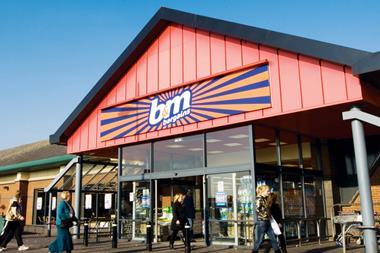

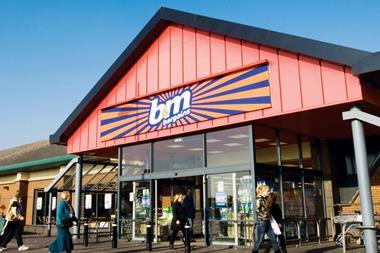

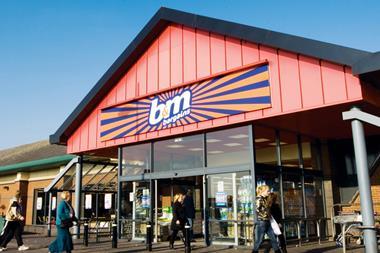
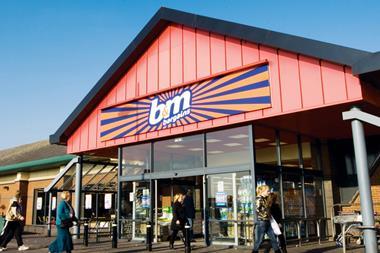






1 Readers' comment